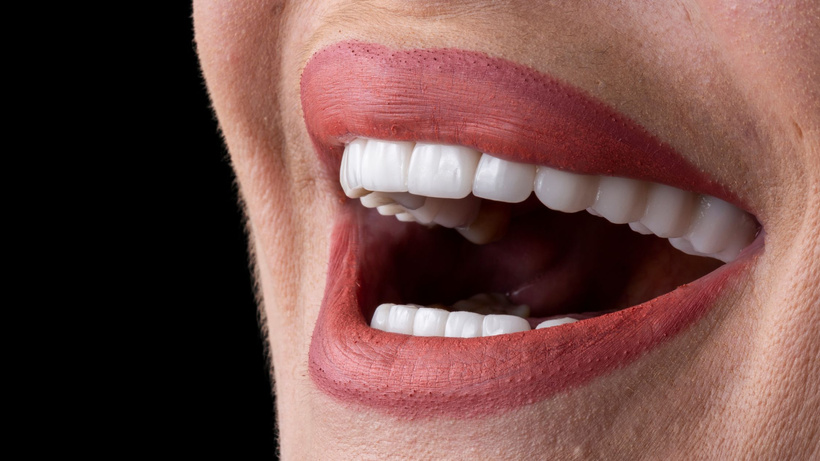In today’s fast-paced world, patients are constantly seeking dental treatments that are quick, effective, and, most importantly, pain-free. Laser dentistry has emerged as a revolutionary solution, offering advanced care with minimal discomfort. Whether you’re looking to treat cavities, improve gum health, or undergo cosmetic enhancements, laser dentistry services provide an efficient alternative to traditional dental procedures.

What Is Laser Dentistry?
Laser dentistry involves the use of focused light beams (lasers) to perform a variety of dental procedures. It was first approved by the FDA in the 1990s and has since evolved into a trusted technique in both general and cosmetic dentistry. Lasers can be used on both hard tissues (teeth) and soft tissues (gums), allowing dentists to address a wide range of issues with precision and reduced recovery time.
There are two main types of lasers used in dentistry:
Hard tissue lasers: Primarily used on teeth for procedures like cavity removal and tooth preparation.
Soft tissue lasers: Used on gums and oral tissues for treatments like gum reshaping, treating periodontal disease, and removing lesions.
Common Laser Dentistry Services
Laser technology can be used in various dental treatments. Here are some of the most common services offered through laser dentistry:
1. Cavity Detection and Tooth Preparation
Lasers can detect early signs of tooth decay before they become visible on X-rays. When cavities are present, lasers can remove decay with high precision, often without the need for anesthesia or drills.
2. Gum Disease Treatment
Lasers are effective in removing infected tissue and bacteria from periodontal pockets, reducing the risk of further infection. This method causes less bleeding and swelling compared to traditional surgery.
3. Teeth Whitening
Laser-activated whitening procedures can significantly speed up the process of whitening teeth. The laser enhances the effectiveness of the bleaching agent, producing faster and more noticeable results.
4. Gum Reshaping and Crown Lengthening
For patients with "gummy" smiles or uneven gum lines, soft tissue lasers can reshape the gums quickly and precisely. Crown lengthening is also easier and less invasive with lasers.
- Treatment of Oral Lesions and Canker SoresLasers can be used to remove benign oral tumors, treat cold sores, and relieve the pain associated with canker sores, often providing instant relief and quicker healing.
- Frenectomy and Tongue-Tie CorrectionChildren and adults with speech issues due to a restrictive frenulum can benefit from a laser frenectomy, which is quicker and involves less healing time compared to traditional surgery.
Benefits of Laser Dentistry
Laser dentistry services offer numerous advantages that make them a preferred choice for many patients:
Minimally invasive: Procedures are less invasive, reducing the need for sutures or anesthesia.
Reduced discomfort: Many patients report little to no pain during and after treatment.
Faster healing time: Lasers promote faster tissue regeneration, leading to quicker recovery.
Less bleeding and swelling: The precision of lasers minimizes damage to surrounding tissues.
Increased precision: Dentists can target specific areas without affecting healthy tissue.
Is Laser Dentistry Safe?
Yes, laser dentistry is a safe and approved technique when performed by a trained professional. Dentists who use lasers must undergo specialized training to operate laser equipment effectively and safely. Protective eyewear is typically provided during the procedure to shield both the patient and practitioner from the laser light.
Who Can Benefit from Laser Dentistry?
Laser dentistry is suitable for both children and adults. It’s particularly beneficial for:
- Anxious patients who fear needles or drills
- Individuals with sensitive gums
- Patients with certain medical conditions that require minimally invasive procedures
- Children who need frenectomies or cavity treatment
However, not all procedures can be performed using lasers. In some cases, traditional dental tools may still be necessary. It’s essential to consult with a qualified laser dentist to determine the best treatment plan for your needs.
What to Expect During a Laser Dental Procedure
A typical laser dental session is simple and relatively quick:- Initial examination to diagnose the issue.
- Protective gear (like special glasses) will be provided.
- Laser treatment begins, with the dentist carefully targeting the area.
- Post-procedure care will be explained, though recovery time is often minimal.
- Most patients return to their normal activities the same day, with minimal discomfort.
Choosing the Right Dentist for Laser Treatment
When selecting a laser dentistry provider, consider the following:Experience and training: Ensure the dentist is certified and experienced in laser procedures.
Technology used: Ask what type of laser equipment is used and whether it’s suitable for your needs.
Patient reviews: Check testimonials and reviews for insights into the dentist’s quality of care.
Final Thoughts
Laser dentistry services are transforming the way dental care is delivered, offering patients a safe, effective, and comfortable alternative to conventional methods. With faster healing, less pain, and better results, laser technology is a game-changer in modern dentistry.




No comments:
Post a Comment